Breastfeeding is flagged by global health entities as being the best start to life a mother can give her baby and child. As part of World Breastfeeding Week – which runs from August 1-17 – we wanted to explore this topic further and highlight how breastfeeding is a shared responsibility: A mother’s ability to feed and the length of time she does it for, is greatly enhanced by the people around her.
One of the first things people think of with breastfeeding is that it’s the most natural thing in the world, right? And while breastfeeding may be natural it doesn’t always happen this way. Most women encounter some degree of difficulty in those first precious days.
During the early stages of breastfeeding new mothers can really struggle with breastfeeding and without the right support this can sometimes alter their breastfeeding journey which is why her partner plays a vital role in supporting and encouraging her.
A partner’s role
One of the best ways to achieve a supportive partnership in your relationship is to get as much information as you can. Attend a breastfeeding class, utilise midwives and lactation consultants, but also communicate with each other as you both navigate this new experience.
While giving her time to learn a partner can also help by making sure the mothers own needs are also cared for such as showering, eating well, staying hydrated and being able to sleep where possible. Something simple like providing an extra pillow while feeding, or changing the scenery, can also aid in maintaining her mental health. With this emotional and physical support mothers are more likely to succeed with their breastfeeding journey.
- The Australian Breastfeeding Association’s article “Especially for Partners” is useful to read on this topic.
Support specifically for Dads
According to SMS4dads, dads play a vital role in the development of their babies – even before their child is born – and they don’t have to wait until their babies are walking and talking to feel like they have a major part to play. New and soon-to-be dads can receive useful messages and tips matched to their babies age to help fathers understand and connect with their baby and support partner. The SMS4dads program is free to join and was developed by many researchers and clinicians from all areas of Australia and overseas.
On the market, there are also some great dad books and phone apps available too by doing a little bit of research. Some online resources:
- Australian Parenting Website Raising Children has some great tips and articles for dads, such as this one: 10 tips for making a great start to fatherhood.
- Support For Fathers is an Australian project providing dads with options and information about fatherhood in general, the relationship with their partner and connecting with their kids, run by the not-for-profit organisation Relationships Australia Victoria.
The role of extended family and friends
This advice doesn’t just extend to partners, but friends, family, grandparents, and relatives too, who can also help mum by offering her encouragement or help relieve her of other responsibilities. Breastfeeding can take a lot of time or a short amount of time depending on factors such as baby’s suction/feeding style, baby’s age, and if baby is going through a growth spurt and is therefore cluster feeding, which means mum would be needing to nurse more frequently with not much rest between feeds.
Supportive ways others can help is by offering to look after older children in the family, bring mum nutritious snacks and water, and relieve her of other tasks she may have such as cleaning or running errands, assisting with school pick-ups, or driving children to and from their lessons or hobby commitments. For further reading on this topic:
- Raising Children has some great advice for grown-ups and how to be supportive here.
- The Australian Breastfeeding Association and Queensland Health has great information about the importance of breastfeeding, challenges and remedies.
Further reading and sources:
· Raising Children (Article: Breastfeeding: why it’s good)
· Australian Breastfeeding Association (World Breastfeeding Week)
· Australian Breastfeeding Association (Australian statistics)
· Pregnancy, Birth & Baby (Cluster feeding)
· Raising Children (Great tips and advice for pregnancy, parenting and caregivers)
